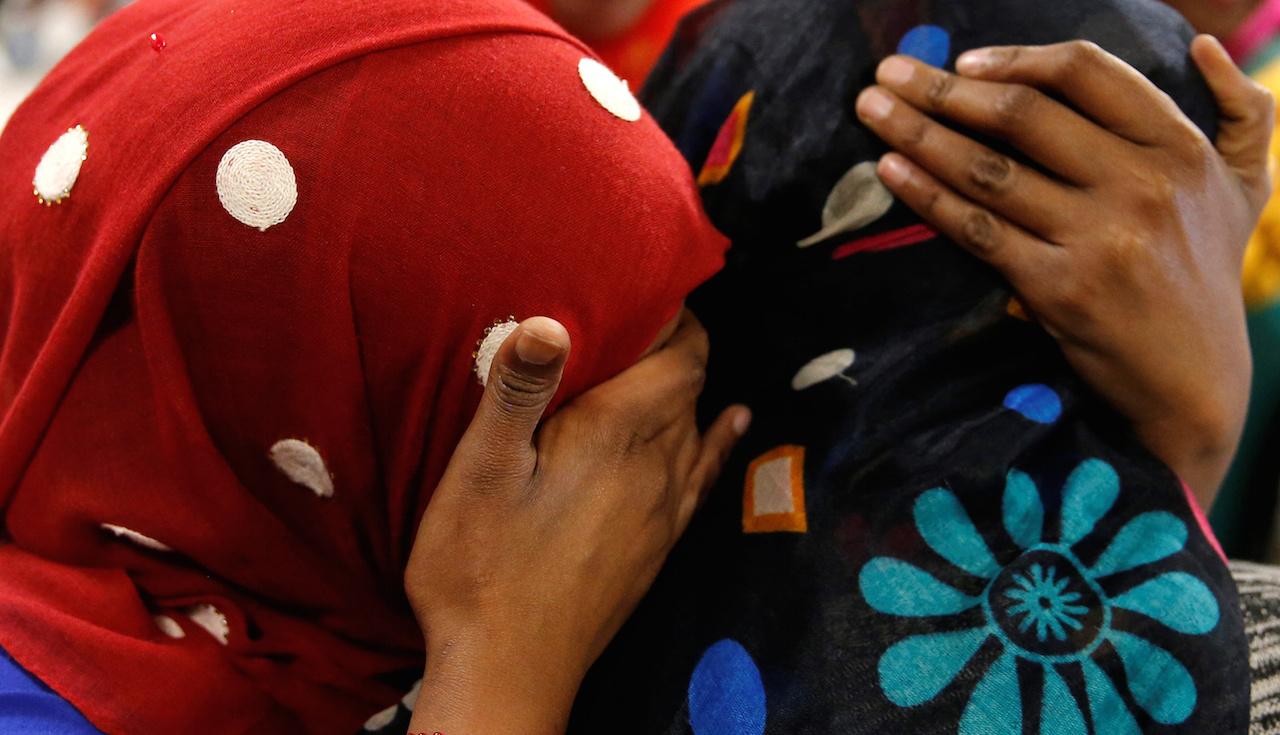Court expresses skepticism of government arguments in favor of Trump’s immigration ban
Asma Abdinasir (L), a Somali national who was initially denied entry to the US because of the recent travel ban, is greeted by her mother Zahra Warsma (R) at Washington Dulles International Airport in Chantilly, Virginia, Feb. 6, 2017.
The US Justice Department faced tough questioning Tuesday as it urged a court of appeals to reinstate President Donald Trump's travel ban targeting citizens of seven Muslim-majority countries — put on hold by the courts last week.
The latest twist in the legal showdown comes four days after a federal judge suspended Trump's decree, opening US borders back up to the thousands of refugees and travelers it had suddenly barred from the country.
Three judges from an appellate court in San Francisco chaired the hour-long telephone hearing followed online by more than 130,000 people — a record, the court said — and broadcast live to millions more on television.
The high-stakes hearing saw an attorney for the government argue that Trump's immigration curbs were motivated by national security concerns and that the federal judge had overstepped his authority in suspending them.
"This is a traditional national security judgment that is assigned to the political branches and the president," argued the Justice Department lawyer, August Flentje.
He said Trump acted perfectly within his constitutional powers and those delegated to him by Congress in issuing the January 27 executive order in the interest of the United States.
Tuesday's hearing was focused on whether to lift the suspension of the ban, not on the constitutionality of the decree itself — a broader battle which looks likely to go all the way to the Supreme Court. A court spokesman said a ruling was likely later this week.
During the hearing the three-judge panel often appeared skeptical, with Judge Richard Clifton saying at one point that the government's argument was "pretty abstract."
The judges questioned Flentje about the evidence connecting the seven countries targeted to terrorism, and pressed him on whether the ban amounts to religious discrimination — as its opponents claim.
Is it a Muslim ban?
The White House insists the decree is in the interest of national security, giving the new administration time to beef up vetting procedures to keep potential terrorists out of the country.
Its detractors claim that it violates the US Constitution by targeting people based on their religion.
An attorney representing the states of Washington and Minnesota — which brought the federal lawsuit against Trump's ban with support from numerous advocacy groups — urged the judges to keep the decree on hold while the case runs its course.
"It has always been the judicial branch's role to say what the law is and to serve as a check on abuses by the executive branch," said Solicitor General Noah Purcell.
"That judicial rule has never been more important in recent memory than it is today, but the president is asking… to reinstate the executive order without full judicial review and throw this country back into chaos," Purcell added.
The states' counsel also came under sustained questioning, with Judge Clifton, a George W. Bush nominee, appearing unconvinced by his arguments that the ban amounted to religious discrimination.
"I have trouble understanding why we're supposed to infer religious animus when in fact the vast majority of Muslims would not be affected," Clifton said, pointing out that less than 15 percent of the world's Muslims were affected.
Purcell argued that the states were not required to show that all Muslims would be affected but only that the ban was "motivated in part by a desire to harm Muslims."
Trump's executive order barred entry to all refugees for 120 days, and to travelers from Iran, Iraq, Libya, Somalia, Sudan, Syria and Yemen for 90 days, triggering chaos at US airports and worldwide condemnation. Refugees from Syria are barred indefinitely.
'We feel confident'
Appearing to lay the groundwork for a setback, the White House earlier Tuesday sought to play down the significance of the upcoming ruling.
"All that's at issue tonight is the hearing is an interim decision on whether the president's order is enforced or not until the case is heard on the actual merits of the order," White House spokesman Sean Spicer told reporters.
"That's why I think we feel confident."
Hosting a group of American sheriffs at the White House on Tuesday, Trump hammered home the rationale for his decree as "common sense."
Trump has lashed out at the Seattle judge who suspended his order, James Robart, as a "so-called" judge — a slur that drew criticism from his own Republican camp — and sought to pin blame on him, and courts in general, for potential future attacks on US soil.
"Just cannot believe a judge would put our country in such peril. If something happens blame him and court system. People pouring in. Bad!" he tweeted on Sunday.
